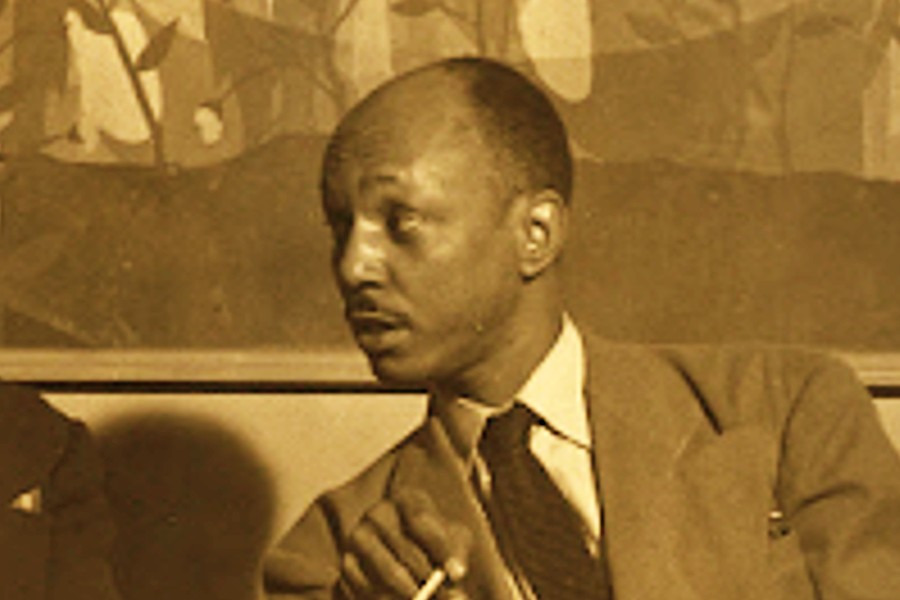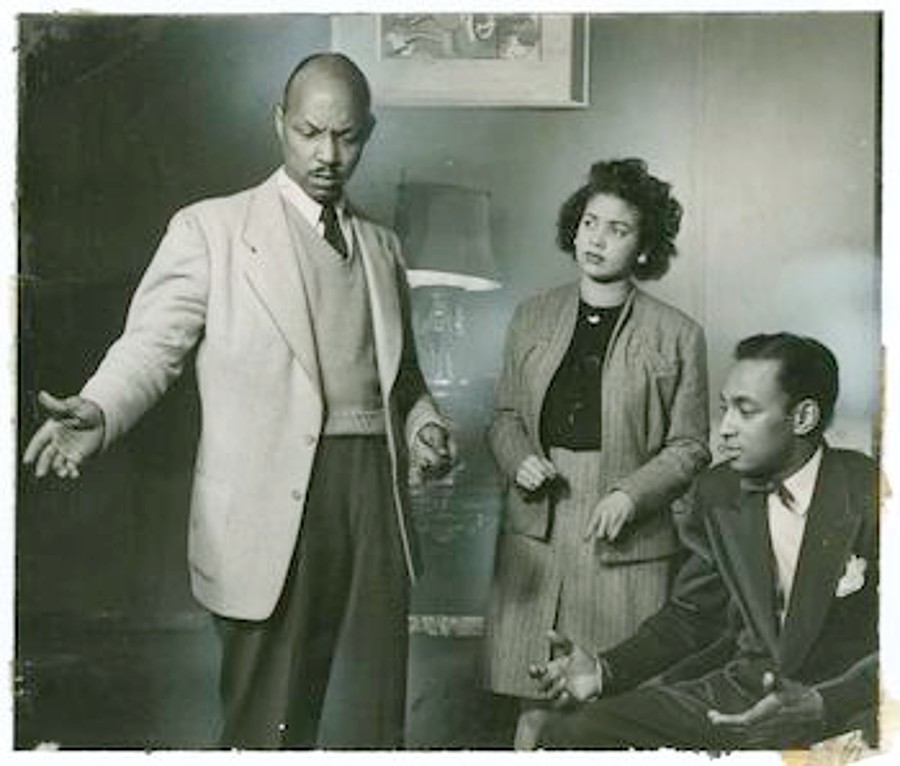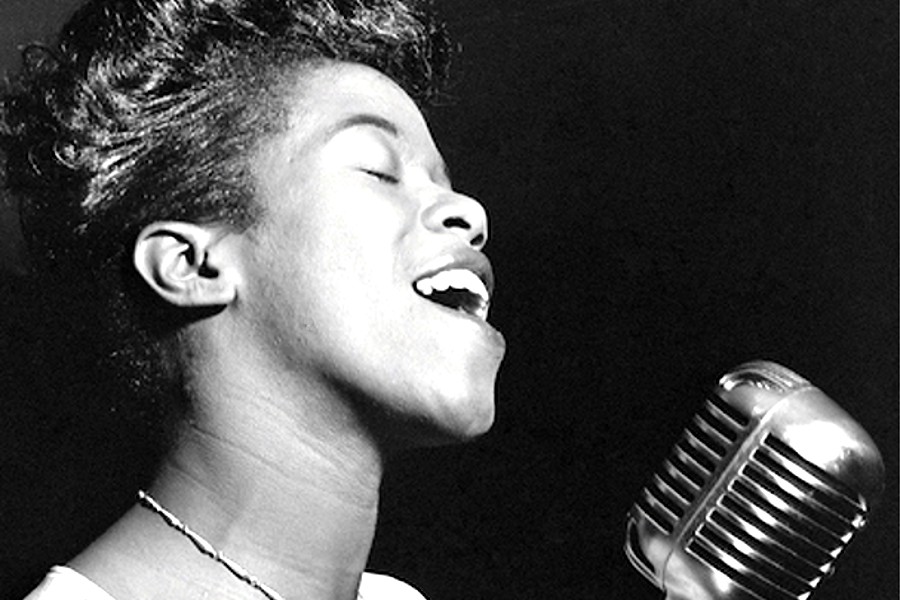
Abram Hill, also known as Ab Hill, January 20, 1910 – October 13, 1986, was a Harlem playwright, and author of On Strivers Row, Walk Hard, Talk Loud, and several other plays.
A principal figure in the development of black theatre from Atlanta, Georgia.
Although best known for his literary work On Strivers Row, Hill’s most fundamental accomplishment was his part in founding the American Negro Theater (ANT) alongside Frederick O’Neal, Harry Belafonte, Alice Childress, Ruby Dee, and Sidney Poitier, and members of the McClendon Players.
Biography
Early years and education
Abram Hill was born in Atlanta, Georgia, on January 20, 1910, and spent half of his childhood there. At the age of seven he appeared in a Morehouse College Theatre production.
In 1925, the family moved to Harlem, New York, and at 13 years of age Hill attended De Witt Clinton High School.
After completing high school, he enrolled at City College of New York for two years and subsequently graduated with a B.A. from Lincoln University, Pennsylvania, in 1937; before graduating he secured a job in drama with the CCC (Civilian Conservation Corps), where he directed productions with male youths.
He majored in Theater Arts at Lincoln, and after graduating was hired as an assistant in the university’s drama department.
Hill returned to New York a year later and joined the Federal Theater Project as a script reader. While working in this group, he wrote his plays Stealing Lightning and Hell’s Half Acre.
These plays would later be produced by the Unity Players of the Bronx, which eventually helped him earn the Theresa Helbrun Scholarship at the New School for Social Research, studying under John Gassner and Erwin Piscator.
His work mostly comprised reading plays for production. He wrote some of his own plays during this period, including On Strivers’ Row, Walk Hard, and Liberty Deferred.
American Negro Theater
In 1939/1940 the Federal Theater Project was shut down, and Hill then teamed up with Frederick O’Neal and a group of other drama artists to form American Negro Theater (ANT) in Harlem.

The NY Times wrote that the A.N.T. began by rehearsing in a funeral parlor and staging productions in the basements of the Abyssinian Baptist Church and the 135th Street library, now the Schomburg Center for Research in Black Culture in Harlem, NY.
Its alumni include Clarice Taylor, Hilda Simms, Helen Martin, Maxwell Glanville, Earle Hyman, Hilda Haynes, Gertrude Jeannette, Roger Furman, and Frederick O’Neal, as well as Mr. Belafonte, Miss Dee, Miss Childress, and Mr. Poitier.
‘We were a nonprofit organization that put on mainly new plays and plays of Negro life,” Mr. Hill explained. ”That was one objective. Our other was to find the essence of an art form that is true to Negro life. We were trying to discover something within ourselves, that we felt we could contribute, some kind of uniqueness, to the world of the theater. We were also a training center. We had a school and a staff of five teachers who taught the fundamentals of the theater art and craft.” ‘Anna Lucasta’ a Success
The theater achieved major success with Mr. Hill’s own adaptation of ”Anna Lucasta.” Philip Yordan’s play about a Polish family, transformed into a story about blacks, opened on Broadway in August 1944 with a cast that included Rosetta LeNoire, Mr. O’Neal, Alvin and Alice Childress, Miss Simms, Canada Lee, and Mr. Hyman. It ran for 900 performances, becoming one of Broadway’s longest-running nonmusical plays. ”Its theme was universal and its people were real,” Mr. Hill said.
In another interview, Mr. Hill recalled how he brought Harlem residents into the theater. ”We sent a wagon up and down the streets of Harlem with somebody beating a drum,” he said. ”We passed out handbills on the street corners. And we had a family night. We let in five members of the family for a dollar.”
Hill and O’Neal believed that mainstream theater not only had few opportunities for Black actors but that it also encouraged a hostile competitive relationship between the artists — each striving to be the only “star”. By contrast, ANT was interested in showing the Black community their own power, with directors, writers, technicians, and actors being equally important.
Their stated mission was: “to break down the barriers of Black participation in the Theater; to portray Negro life as they honestly saw it; [and] to fill the gap of a Black Theater which did not exist.”
They hoped to establish a company as a platform for African-American artists that would provide opportunities not available to them on Broadway, creating an accessible space where they could perform regularly. In June 1940, ANT got off to a promising start and became one of the most prominent and successful black theaters.
From 1940 to 1950, ANT put on 20 plays, more than half of which were original. During the company’s years of operation, 50,000 people attended ANT plays.
Interviewed shortly before his death, Hill recalled how he brought Harlem residents into the theater. “We sent a wagon up and down the streets of Harlem with somebody beating a drum …. We passed out handbills on the street corners. And we had a family night. We let in five members of the family for a dollar.”
After leaving ANT in 1948, he continued working both as a director, with the Lincoln University Players in the early 1950s, and as a teacher of English in New York schools.
Death
Abram Hill died in Harlem at the age of 76 in 1986.
Legacy
An exhibition entitled The 75th Anniversary of the American Negro Theatre was opened at the Schomburg Center for Research in Black Culture in 2015.
Pictured Credit: 1) Frederick O’Neal and Abram + A production photo of ANT’s Macbeth. 2) Abram Hill directing at ANT (Ref. Source).
Become a Harlem Insider!
By submitting this form, you are consenting to receive marketing emails from: Harlem World Magazine, 2521 1/2 west 42nd street, Los Angeles, CA, 90008, https://www.harlemworldmagazine.com. You can revoke your consent to receive emails at any time by using the SafeUnsubscribe® link, found at the bottom of every email. Emails are serviced by Constant Contact








